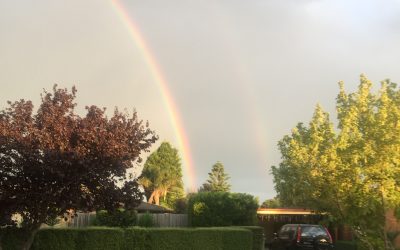What I bring to Aston as an Independent Candidate
As an Independent Candidate being a person who is standing for parliament without the backing of a major political party, I am joining a long history in elections both here in Australia and around the world. While I do not have the same resources or party infrastructure as my partisan opponent, as an independent candidate I bring a unique set of advantages and challenges to the political landscape. My presence in this election, I am hoping can significantly influence the democratic process, offering voters additional choice, new perspective, and a voice of dissent in our polarised political environment.
Why I am proud to stand as an independent for Aston
- Diverse Perspectives and Fresh Ideas
I present fresh ideas and policies that break away from traditional party lines. I take stances that reflect both the specific needs of Aston voters which are influenced – but not controlled by my personal values, rather than adhering to the party platform. This independence allows me to address issues from unique angles and propose solutions that may be overlooked by party-affiliated candidates, particularly if those solutions don’t fit within the party’s standard ideological framework.
- Appeal to Disillusioned Voters
In Australia, voter apathy and disenchantment with the established political system are widespread. I can tap into this dissatisfaction by presenting myself as an alternative to the entrenched political establishment. Voters who feel that major parties no longer represent their views are encouraged to support me as I will act outside of partisan constraints. As a voice for reform, transparency, or authenticity, I hope to galvanise a base of voters who are disillusioned with the status quo.
- Greater Focus on Constituents, Not Party Loyalty
One of the key advantages of being an independent candidate is that I am not beholden to party leadership, special interest groups, or party discipline. This autonomy will lead to greater flexibility in responding to the needs of the electorate of Aston. As an independent candidate, I will make decisions based on the needs of Aston, rather than on party agendas. I present my independence from party loyalty to appeal to Aston voters who believe that elected officials should prioritise their constituents over party politics.
- Potential for Bipartisanship and Collaboration
As an independent candidate I will bring a collaborative, bipartisan approach to governance, which is especially important in highly polarised political environments. My lack of party affiliation will allow me to work across party lines, building coalitions with both major parties to pass legislation or address pressing issues. This potential for cross-party collaboration can result in more balanced decision-making and a reduction in the gridlock that often plagues partisan politics.
- Challenge to the Dominance of Major Political Parties
The rise of independent candidates both here in Australia and around the world, also serves as a challenge to the dominance of major political parties. In a system where two-party systems are entrenched, such as here in Australia, independent candidates disrupt the binary choice typically presented to voters. They force the major parties to pay closer attention to voter concerns outside of their typical ideological bases. This can lead to more responsive and inclusive politics, as political parties may feel the need to broaden their platforms or reconsider their positions to maintain voter support. This is what I want to bring to Aston.
- Potential Drawbacks and Challenges
Whilst there are plenty of advantages, there are also some marked challenges. As an independent candidate, I face significant challenges such as the ability to garner media attention and mobilize large networks of volunteers. I expect the major parties will dominate the political discourse, making it difficult for me. As an independent candidate to gain visibility. I acknowledge that as an independent, I expect it may be challenging to implement my ideas if elected, as I may not have the legislative support or resources that come with party affiliation. My effectiveness in office may be hindered by the lack of a structured political base to support their policy initiatives.
- Case Studies of Successful Independent Candidates
Despite the obstacles, history has shown that independent candidates can be successful. In the United States, Ross Perot made a significant impact in the 1992 presidential election by garnering 19% of the popular vote. While he did not win, his candidacy influenced the national political discourse, particularly on issues such as the federal budget deficit.
In the UK, independent candidates have also occasionally broken through, especially in local elections or in the context of specific issues, such as in the case of former Labour MP, Independent George Galloway, who won a by-election in 2012. Similarly, in countries like Finland and Switzerland, independent politicians often form coalitions or operate successfully without a party affiliation.
Conclusion
As an independent candidate, I see my candidacy will play an important role in election by offering a counterbalance to the power of political parties, advocating for reforms, and representing diverse viewpoints. I will serve as a voice for disaffected voters, pushing the political conversation in new directions and calling attention to issues that might otherwise be sidelined. While I face significant challenges, My presence in the election can lead to more dynamic, inclusive, and representative political process. As the political landscape continues to evolve, the impact of independent candidates like me is likely to remain an important factor in shaping democratic outcomes here in Australia and around the world.





0 Comments